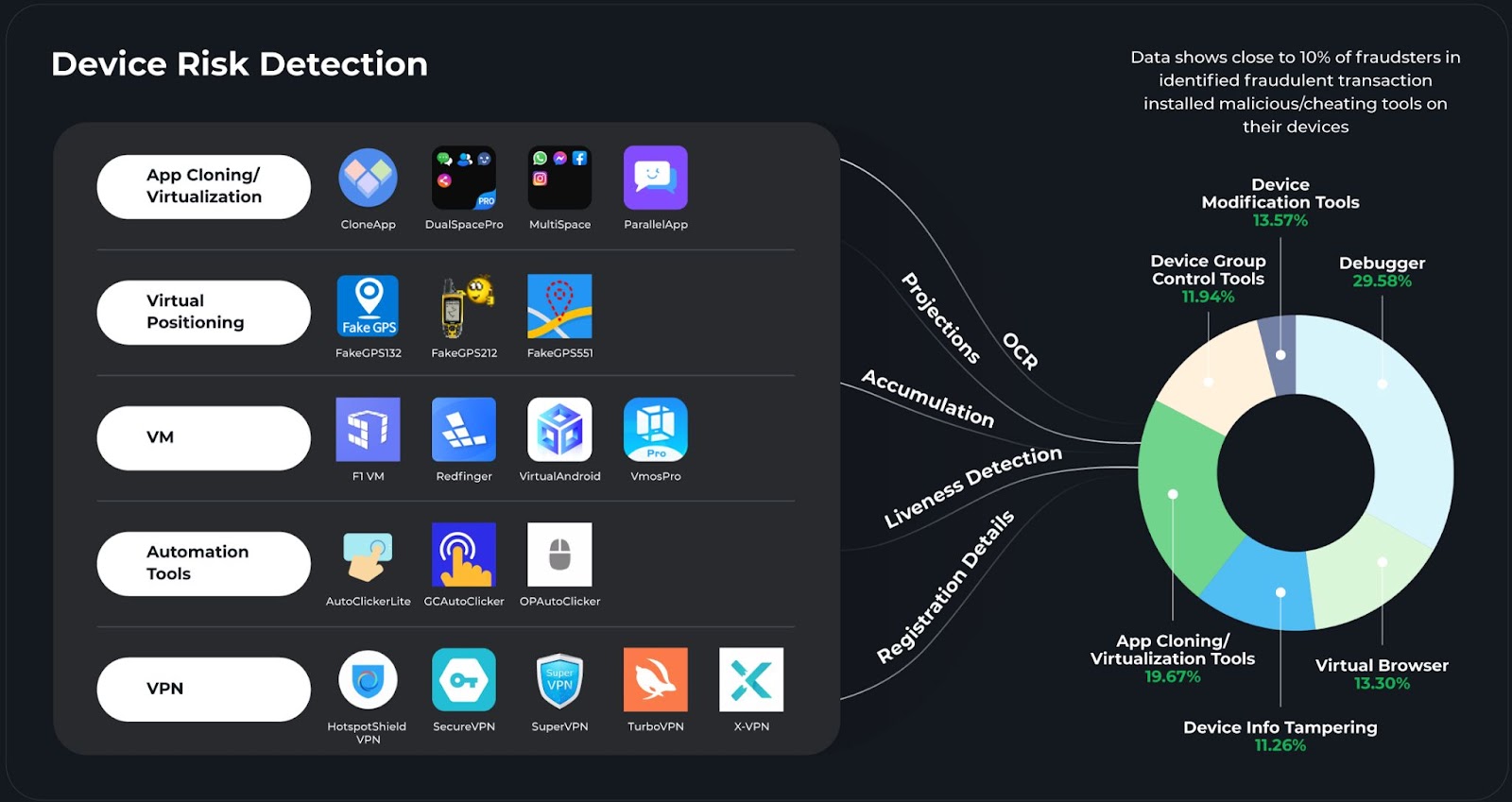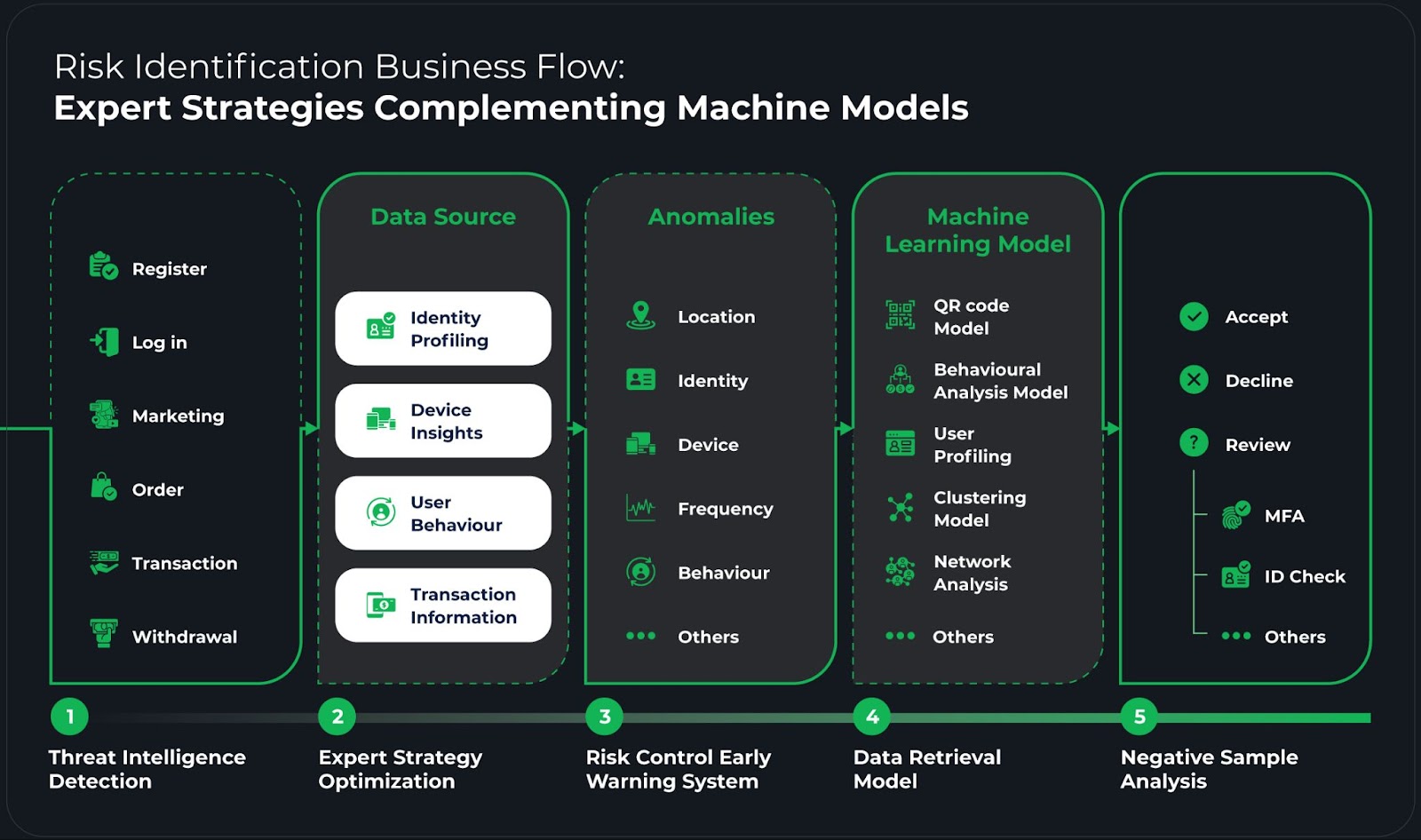The digital commerce is thriving. So does digital fraud.
As the end of the year approaches, digital commerce platforms and merchants are ramping up their preparations for the peak shopping seasons.
From Singles Day (11.11) to Black Friday, Cyber Monday, and Christmas Sales, merchants stock abundant goods and deploy diverse promotional strategies to captivate global consumers' hearts.
The array of tactics is vast and varied, from cash incentives for new users to friend-referral discounts and point-based reward systems.
However, with these aggressive marketing strategies come significant vulnerabilities.
The landscape of seasonal promotions becomes a playground beyond legitimate sales and an arena where fraudulent activities, fueled by increasingly sophisticated tactics, run rampant.
This article delves into the nuances of the challenges posed by fraudulent activities during peak seasons.
We will also explore innovative solutions to safeguard the integrity of your e-commerce platforms.
The Rise of Internet Frauds Becoming A Global Challenge
As the digital marketplace continues to flourish, so does the sophistication of electronic fraud.
Malicious fraudsters exploit promotional incentives for personal gain.
From concocting fake reviews to orchestrating coupon heists, these deceptive practices jeopardize the trust and financial stability of e-commerce entities globally.
A Cascade of Consequences on the E-Commerce Ecosystem
The repercussions of internet fraud extend beyond immediate financial losses.
As a digital commerce owner, the impact on your business may include:
- Reputational Damage: When your consumers notice prevalent fraudulent activities, it will negatively impact your brand's credibility and trust, affecting your long-term business performance.
- Legal Risks: Fraudulent activities may lead to potential legal actions and fines.
- Resource Wastage: Combating these activities demands significant time and resources, reducing your operational efficiency.
Unraveling Fraudster Tactics: A Symphony of Deceit
Fraudsters employ a sophisticated arsenal of tactics, including false registrations, fake reviews, and the creation of multiple accounts to exploit promotional offers.
Their manipulation extends to using cheat software, altering device parameters, and orchestrating large-scale fraud through device farms.
Understanding these tactics is crucial for e-commerce entities to fortify their defenses.
Digital Fraud Tactic #1: False Information and Bogus Registrations
Illicit businesses initiate their operations by inundating platforms with a plethora of false information during bogus registration.
This crucial step facilitates their entry into the digital ecosystem.
These rogue entities often register a batch of numbers or emails, engaging in seemingly ordinary transactions to outsmart platform risk monitoring strategies.
Subsequently, they create multiple fake or anonymous accounts to exploit promotional offers, claim discount coupons, and receive cashback repeatedly.
Digital Fraud Tactic #2: Cheating Tools and Automated Scripts
Fraudsters employ various cheating tools and software to outmaneuver platform monitoring and enhance operational efficiency.
A prevalent method involves using technical means, such as executing automated scripts or employing tools like Macros to mimic manual operations, facilitating automatic coupon collection.
Initial processes include automated registration or number scanning through code-receiving and captcha platforms, enabling the acquisition of a batch of usable accounts with saved login information.
This is then leveraged for automated mass logins and subsequent automatic coupon collection.

Digital Fraud Tactic #3: Device Parameter Tampering
Besides that, digital fraudsters also exploit device modification and device info tampering tools, installing software to alter crucial device parameters like IMEI, IMSI, SIM card serial numbers, GPS location, and phone model.
By manipulating these parameters, fraudsters can create many new devices, enabling the continuous claiming of coupons meant for new users.


Digital Fraud Tactic #4: Device Farms
Device farms, or group control systems, are common tools for illicit operators.
These systems remotely control many mobile devices for coupon collection through technical means.
Using the Android system, for example, the Device Group Control System is deployed on a server, connecting all controlled devices to the server via USB or network. The server then translates relevant operations into corresponding ADB (Android Debug Bridge) commands, which are subsequently sent to the controlled devices for execution.
Digital Fraud Tactic #5: Crowdsourcing Deception
Scammers often resort to crowdsourcing by posting tasks in forums or social media groups, enticing the public to assist in their fraudulent activities.
Following the crowdsourcing operation, ill-gotten gains are centrally delivered to an address provided by the scammers.
Upon receipt, these fraudulent gains are converted into cash.
Addresses provided often include codes or phone numbers, facilitating collusion with couriers for door-to-door delivery.

The operations orchestrated by the fraud industry aim to secure gains from digital commerces marketing activities.
It may seem like a small sum. However, the incremental accumulation of small profits often results in substantial gains.
While even well-established digital commerce platforms grapple with the complexities of sophisticated electronic fraud, the challenge is magnified for small to mid-range counterparts and merchants.
TrustDecision Leading Risk Management in the Digital Landscape
Striking Against Internet Frauds With Proprietary Device Fingerprint Technology
As a prominent international risk management company, TrustDecision utilizes cutting-edge proprietary device fingerprint technology to combat internet fraud.
This sophisticated technology allows us to continually monitor and inspect various tools prevalent in digital commerce fraud.
Malicious Tools Analysis
TrustDecision actively identifies and analyzes malicious software or cheating tools in the market, revealing the intricate methodologies employed by fraudsters.
Among the detected tools is the multi-accounting tool, a potent instrument enabling the opening of multiple accounts on a single phone, thereby facilitating fraudulent operations.

Diverse Malicious Tools Monitored by TrustDecision
- Virtual Location Software: After installation, this software empowers users to arbitrarily change their geographic location information, rendering specific platforms' monitoring rules for geographic locations ineffective.
- Virtual System Environment: A forged terminal environment designed to bypass risk control monitoring, allowing illicit operators to conduct activities undetected.
- Automation Tools (Macros): Developed for performing batch operations, the infamous Quick Macros, or QMacros, in China stands out. This software enables instantaneous automation of manual processes behind the scenes. TrustDecision's detection algorithms scrutinize and counteract such tools.
Insights from TrustDecision Data
TrustDecision's data reveals that 10% of transactions identified as fraudulent exhibit abnormal behavior in their terminal devices.
Comprehensive Risk Management Solutions by TrustDecision
Global Database of Malicious Tool Samples
Leveraging a vast database of several billion compliant devices worldwide, TrustDecision has established an all-encompassing global repository of malicious tool samples.
As a leader in security and risk management services, we prioritize continuous monitoring of both domestic and international fraud tools.
With each discovery of a new tool, TrustDecision proactively combats it, ensuring the ongoing security of our clients' businesses.

Smart Analysis Platform: A Sentinel in Real-Time Risk Monitoring
TrustDecision integrates an intelligent analysis platform fortified with multi-modal AI and machine learning technologies.
This platform is pivotal in real-time risk monitoring and near-real-time fraud ring detection across various customer interactions, including registration, login, transactions, payments, and other critical touchpoints, ensuring comprehensive security measures throughout the customer journey.
Benefits for Clients
- Risk Mitigation: Through real-time monitoring and detection, TrustDecision empowers you to mitigate potential risks associated with fraudulent activities swiftly.
- Regulatory Compliance: The advanced capabilities of TrustDecision's platform aid you in staying compliant with evolving regulations in the digital landscape.
- High-Quality Business Development: You can benefit from a secure environment that fosters high-quality business development bolstered by TrustDecision's proactive risk management solutions.
We are your stalwart ally, safeguarding your business in the dynamic and ever-evolving digital landscape.
Conclusion
As you gear up for the upcoming shopping extravaganzas, remember to recognize the silent guardians working tirelessly to secure the prosperity of your business amidst the looming threat of digital fraud.
By understanding the complex web of fraudulent activities and embracing innovative solutions, you can turn the tide against the dark underbelly of digital commerce, ensuring a secure and thriving marketplace.














